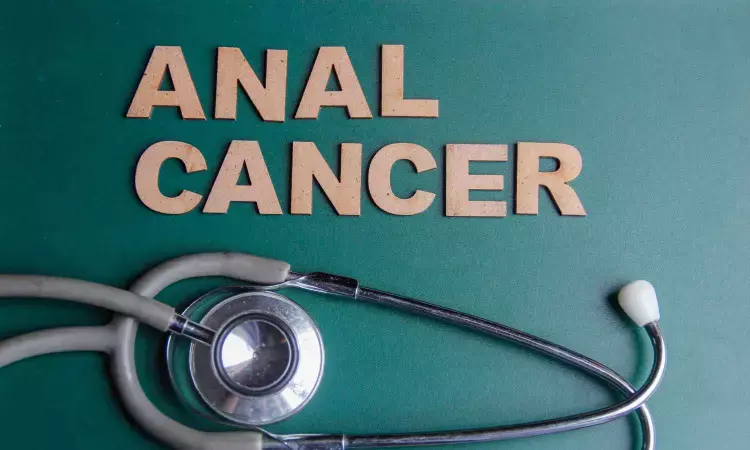- Home
- Medical news & Guidelines
- Anesthesiology
- Cardiology and CTVS
- Critical Care
- Dentistry
- Dermatology
- Diabetes and Endocrinology
- ENT
- Gastroenterology
- Medicine
- Nephrology
- Neurology
- Obstretics-Gynaecology
- Oncology
- Ophthalmology
- Orthopaedics
- Pediatrics-Neonatology
- Psychiatry
- Pulmonology
- Radiology
- Surgery
- Urology
- Laboratory Medicine
- Diet
- Nursing
- Paramedical
- Physiotherapy
- Health news
- Fact Check
- Bone Health Fact Check
- Brain Health Fact Check
- Cancer Related Fact Check
- Child Care Fact Check
- Dental and oral health fact check
- Diabetes and metabolic health fact check
- Diet and Nutrition Fact Check
- Eye and ENT Care Fact Check
- Fitness fact check
- Gut health fact check
- Heart health fact check
- Kidney health fact check
- Medical education fact check
- Men's health fact check
- Respiratory fact check
- Skin and hair care fact check
- Vaccine and Immunization fact check
- Women's health fact check
- AYUSH
- State News
- Andaman and Nicobar Islands
- Andhra Pradesh
- Arunachal Pradesh
- Assam
- Bihar
- Chandigarh
- Chattisgarh
- Dadra and Nagar Haveli
- Daman and Diu
- Delhi
- Goa
- Gujarat
- Haryana
- Himachal Pradesh
- Jammu & Kashmir
- Jharkhand
- Karnataka
- Kerala
- Ladakh
- Lakshadweep
- Madhya Pradesh
- Maharashtra
- Manipur
- Meghalaya
- Mizoram
- Nagaland
- Odisha
- Puducherry
- Punjab
- Rajasthan
- Sikkim
- Tamil Nadu
- Telangana
- Tripura
- Uttar Pradesh
- Uttrakhand
- West Bengal
- Medical Education
- Industry
Anal cancer rates rising most among older, white and Hispanic women, suggests study

Anal cancer has been steadily increasing in the United States, with the biggest jumps among older women, especially white and Hispanic women-a shift that challenges assumptions about high-risk groups and who should be screened, according to a study to be presented today at Digestive Disease Week® (DDW) 2025.
“Rates of anal cancer are rising fastest among white and Hispanic women over 65-groups not traditionally considered high risk,” said lead author Ashley Robinson, MD, a second-year internal medicine resident at Advocate Lutheran General Hospital. “While the exact reasons behind this trend remain unclear, most older women were beyond the recommended age for human papillomavirus vaccination when it first became widely available.”
Human papillomavirus, known as HPV, causes 90% of anal cancers.
Researchers analyzed data from the National Cancer Institute’s Surveillance, Epidemiology, and End Results database, known as SEER, from 2017 to 2021. They found anal cancer increased by 2.9% for women and 1.6% for men. Anal cancers increased fastest among white women over 65, who saw a 4.3% increase during the five-year study period, reaching 11.4 cases per 100,000 in 2021. If the trend continues, the incidence of anal cancer in women over age 65 would double in less than 17 years.
Hispanic women over age 65 had the second-highest rate of anal cancer, with 7.5 cases per 100,000 people in 2021 and a slower annual increase of 1.7%.
“It’s crucial that we promote HPV vaccination as a key tool for preventing anal cancer, while also keeping health care providers informed as screening guidelines evolve,” Dr. Robinson said. “These findings highlight specific patient groups who may benefit from targeted screening for anal HPV and anal cancer.”
Still considered rare, anal cancer makes up approximately 1% of all gastrointestinal cancers, with more than 90% of cases linked to chronic HPV infection. While screening for anal HPV, dysplasia and cancer is recommended for high-risk groups-identified as individuals with HIV, bone marrow transplant recipients and other immunocompromised populations-older women addressed in this study are not included.
Reference:
Anal cancer rates rising most among older, white and Hispanic women, Digestive Disease Week, Meeting, Digestive Disease Week.
Dr Kamal Kant Kohli-MBBS, DTCD- a chest specialist with more than 30 years of practice and a flair for writing clinical articles, Dr Kamal Kant Kohli joined Medical Dialogues as a Chief Editor of Medical News. Besides writing articles, as an editor, he proofreads and verifies all the medical content published on Medical Dialogues including those coming from journals, studies,medical conferences,guidelines etc. Email: drkohli@medicaldialogues.in. Contact no. 011-43720751


